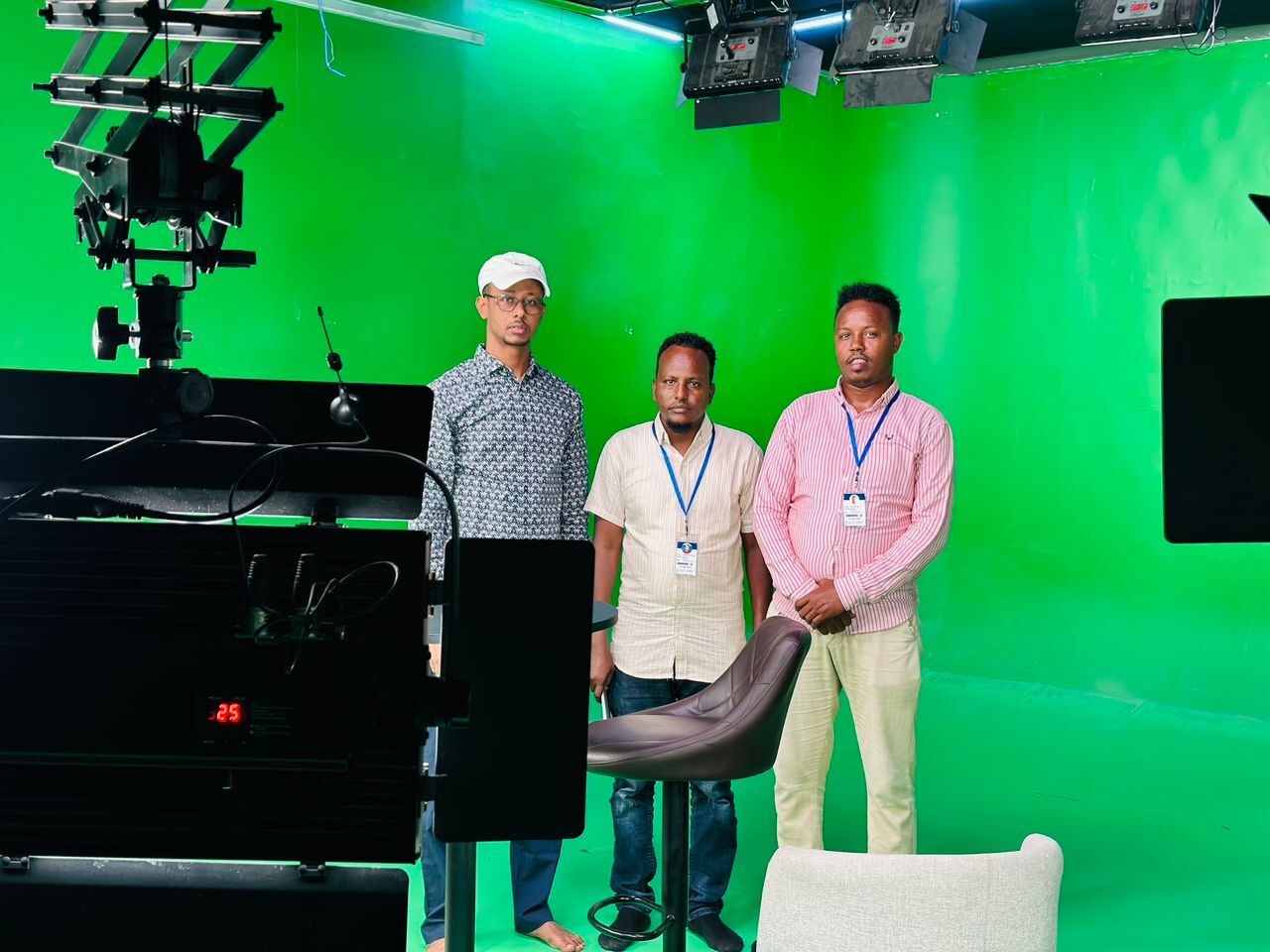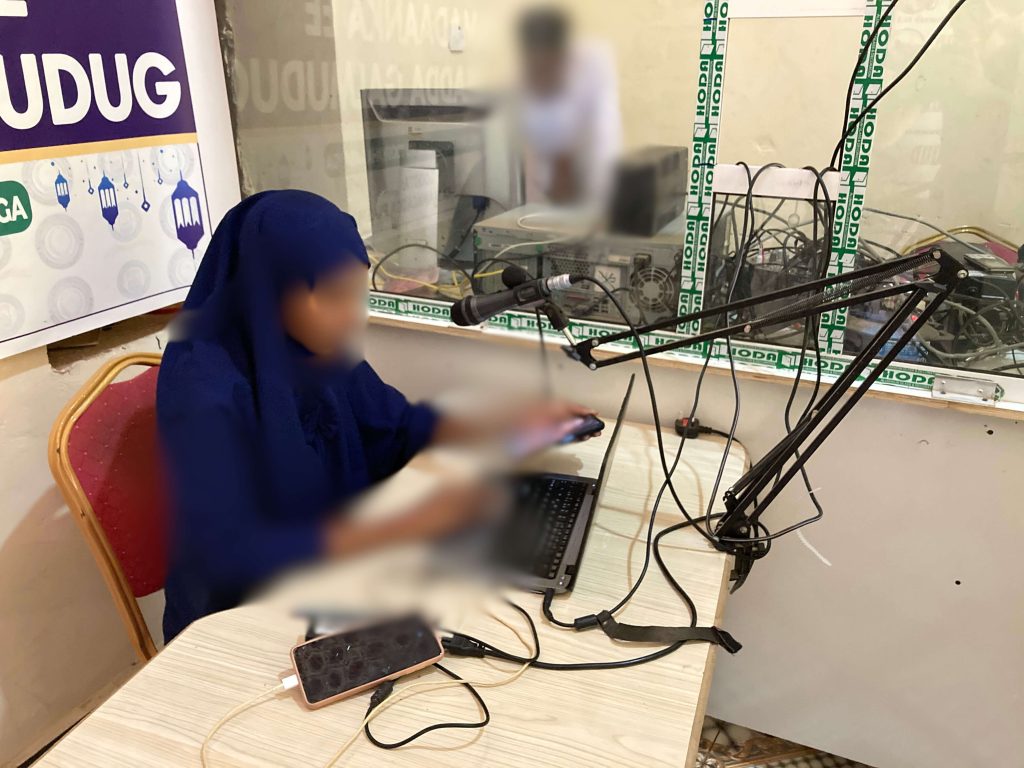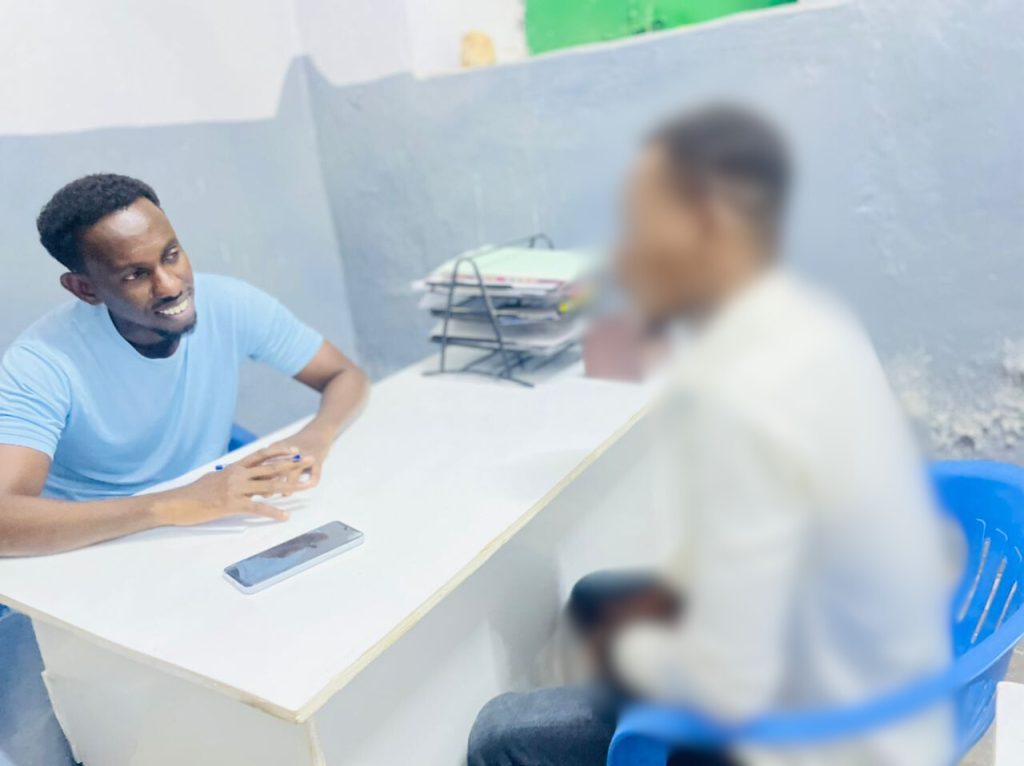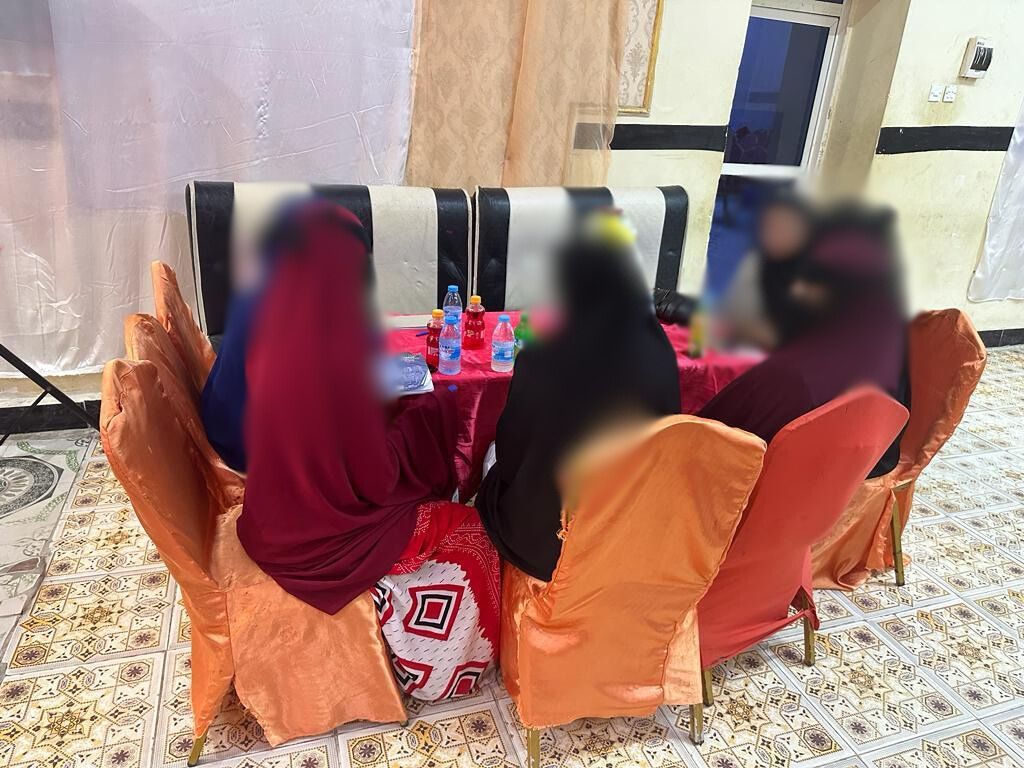September 29, 2024

The Somalia Program promotes the disengagement of members of the so-called violent extremist organization Al-Shabaab and supports surrendered or arrested individuals in their deradicalization and reintegration into society.
It is also important for Somali society to deepen its understanding of so-called violent extremist organizations and individuals associated with them, and to develop a shared commitment to peace across communities. Therefore, we have created opportunities for dialogue between local communities and former combatants, as well as public awareness and educational initiatives.
This report shares our work in broadcasting interviews with disengaged combatants on the radio as part of these awareness and education efforts.
1. Radio Interviews with Surrendered Fighters
Since October 2022, under a commission from the U.S. Department of State, we have been conducting awareness-raising and outreach efforts targeting youth within extremist organizations through radio broadcasts.
Through these radio broadcasts, we have shared the realities faced by individuals who were part of these organizations and information about our reintegration programs. Our goal is to foster public understanding of the complex backgrounds these individuals carry, counter the propaganda disseminated by the groups, and provide information that could encourage young people currently associated with them to surrender.
This time, in collaboration with local radio stations, we broadcast interviews with former combatants from southwestern Somalia currently at our rehabilitation center.
By delivering the firsthand accounts of these individuals, we aim to convey to listeners in local communities the difficult backgrounds of young people affiliated with Al-Shabaab, the importance of accepting them back into society, and the critical role of cooperation in facilitating their surrender.
If the local community is uncooperative and harbors suspicion toward young people who were part of the armed groups, surrender efforts may fail from the outset. Even if a young person does reintegrate into society, they may find no place for themselves, become disillusioned, and radicalize again. Understanding and cooperation from the local community are essential for these individuals to return to society as agents of peace.
Radio broadcasts also aim to prevent youth from joining Al-Shabaab in the first place and to reach young people already within Al-Shabaab to encourage voluntary surrender.
Particularly, people living outside the armed group’s areas of control often lack sufficient understanding of the recruitment tactics used by the organization and of Al-Shabaab’s ideology. This makes young people more susceptible to joining the group when approached. Furthermore, young people within the so-called violent extremist organization Al-Shabaab often have limited access to information. Radio broadcasts are therefore being utilized to deliver information to a wide audience, including those within Al-Shabaab’s areas of control, in an effort to prevent new recruitment and encourage defections from the organization.
 ▲Awareness and educational campaigns through radio broadcasts.
▲Awareness and educational campaigns through radio broadcasts.
This time, with these objectives in mind, we interviewed a surrendered soldier. He shared his background, life within the organization, the harsh realities of his surrender, what he is learning at the rehabilitation center, and his aspirations for reintegration into society.
During the interview, we took the utmost security precautions, including altering his voice and using a pseudonym. The interview was made possible due to his strong desire to participate.
Below are excerpts from the actual interview.
Voices from the interview with the surrendered combatant:
“I joined al-Shabaab because I believed what my friends told me—about their ideology, which sounded idealistic at first glance, and how people living in their controlled areas enjoyed freedom.”
“However, after receiving combat training, all contact with family and friends was strictly forbidden, and our phones were confiscated. Then, I was sent far away from my family and friends in southwestern Somalia to central Somalia to participate in combat. There, I witnessed the reality of civilians and comrades being killed or tortured for no reason. Doubts about the organization began to grow within me. Amidst this, I myself was abducted and subjected to torture.”
“My growing doubts about the organization, combined with the truly agonizing physical and mental toll of the torture, led me to decide to defect from Al-Shabaab.”
“When I surrendered, I was surprised by how warmly my fellow members and the staff at the rehabilitation center welcomed me. I think I was quite introverted before surrendering, but through group life at the rehabilitation center, I’ve had more opportunities to interact with many people and have become more proactive in communicating.”
Thanks to the religious re-education at the rehabilitation center, I’ve been able to re-examine my religious views and started thinking about what peace truly means. I joined Al-Shabaab because I believed biased information from friends, but I want to do what I can to help reduce the number of young people who go through similar experiences. And from now on, I aspire to become an agent of peace who can help rescue friends still trapped within Al-Shabaab.
 ▲Scene from the interview.
▲Scene from the interview.
There are young people like him who, precisely because they belonged to a non-state armed group, can now speak out based on that experience to help realize a peaceful society. These young people are exactly the unique agents of peace we envision.
We will continue to believe in their potential and work tirelessly so that as many young people as possible can become agents of peace.
2. Reactions from Local Community Listeners
We also heard from local listeners who heard his interview broadcast, and we share their voices below.
Listener Voices:
“Many young people and local communities still lack awareness of Al-Shabaab’s dangers and influence. That’s precisely why the government, military, and local communities must cooperate to advance such crucial awareness-raising activities.”
“Furthermore, it is necessary to strengthen support so that young people fighting for Al-Shabaab can return to their local communities, understanding their background as defectors. As a citizen myself, I want to actively participate in building peace in Somalia.”
As reflected in the listeners’ voices, achieving a peaceful Somali society requires deepening mutual understanding and establishing cooperative frameworks among the government, military, and local communities. As part of this effort, broadcasting the former combatant’s voice to many citizens through this radio program and promoting community understanding was significant.
Furthermore, it provided information to young people unaware of Al-Shabaab’s recruitment tactics and to those within the organization, making it a meaningful initiative for preventing recruitment and encouraging defection.
 ▲Regularly conducted listener surveys.
▲Regularly conducted listener surveys.
We will continue exploring various approaches, such as radio broadcasts and online dialogue forums, to help Somali society as a whole deepen its understanding of peace.
We sincerely appreciate your continued warm support.
To Our Readers
We sincerely hope you will join us as an Ambassador at this time. Together, we can rescue young people entangled in violence, powerfully support them in walking new paths, and contribute to resolving terrorism and conflict.
Activity Reports










